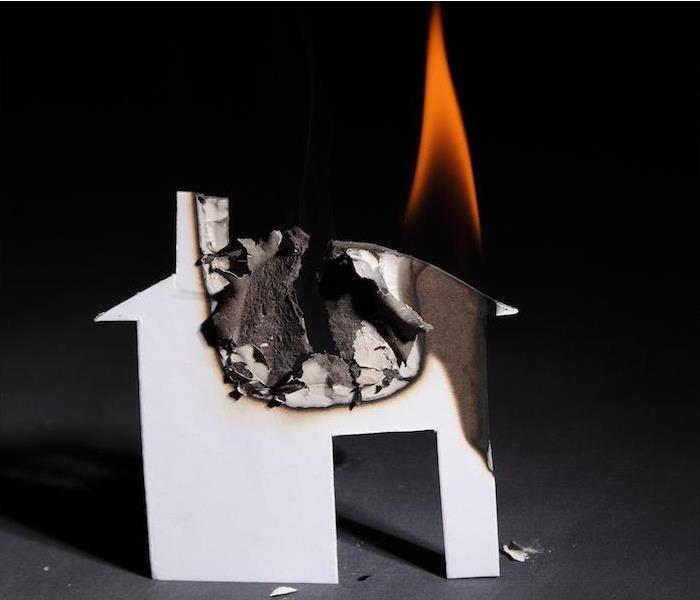Breaking Down the Fire Tetrahedron
1/31/2022 (Permalink)
 If your home or business has any damage, SERVPRO of Carrollton is ready around the clock to help you recover.
If your home or business has any damage, SERVPRO of Carrollton is ready around the clock to help you recover.
First things first, do you know the definition of a tetrahedron? To cut down on time, let us explain…it’s a three-dimensional, triangular shape with four equal sides.
Now that you know the basics of the geometric shape, let’s discuss what a fire tetrahedron is.
Basically, it’s a way of acknowledging that there are four components needed for fire to start—or four “sides” to the equation. If one of the sides is removed, the structure can’t stand and the fire can’t start.
The 4 Things a Fire Needs to Live
Fuel. Fire, like people, needs fuel to keep going. It can be organic or inorganic, but there has to be some source of fuel for a fire to start, such as wood or plastic.
Heat. The amount of heat needed to start a fire varies from substance to substance. But you must have enough heat to cause combustion. Every object has a set point at which it will combust, melting or igniting.
Oxygen. Fire reacts with oxygen to produce a series of chemical reactions. In short, oxygen feeds the fire so that it can keep growing and generates products of combustion in the process.
Chemical Chain Reaction. The cycle of heat, fuel and oxygen combine to produce a chain reaction. This will perpetuate a fire as long as the chain reaction is undisturbed.
The 4 Ways to Stop a Fire
Cool it. This is the most common method for extinguishing a fire, and the most common form of cooling is the application of water. Eventually, when dousing the flames with water, they reach a temperature below what’s needed to sustain a fire.
Smother it. If a fire doesn’t have access to oxygen, then it can’t live. To smother it, you must deprive it of oxygen. This can be a simple task like snuffing a candle, or it can be a little more difficult because it might need chemicals introduced.
Starve it. When a fire burns with no outside interference, it will likely burn until it runs out of adequate fuel. To be proactive, you should remove the fuel source while the fire is still trying to consume it.
Interrupt the chain reaction. Chemical agents can effectively disrupt a chain reaction and put a fire out. One chemical agent that is very effective is halon, but it has an elevated potential for ozone depletion, making it an environmental threat.
If the fire tetrahedron makes a wreck of your home or business, we’re ready around the clock to help you recover. Contact SERVPRO anytime for fast, thorough cleanup and recovery after a fire.




 24/7 Emergency Service
24/7 Emergency Service